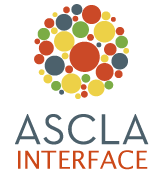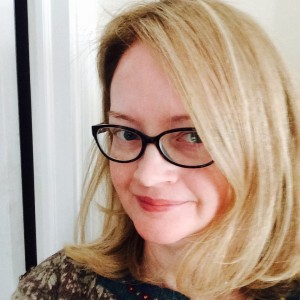by Lily Sacharow
Elizabeth (Liz) Burns
Youth Services Consultant for the New Jersey State Library Talking Book and Braille Center
October 2007-Present
Tell us about the track you took to get to your current position.
Librarianship is a second career for me; before this, I was a lawyer for about ten years. I went back to school for my MLIS expecting to go into law librarianship, but ended up in public libraries as a children’s and young adult librarian. I love this job, but I also was looking for ways to do more, for advancement, for new opportunities. Often, in public libraries, that means entering management and giving up youth services librarianship as a full-time role, so I began looking for opportunities for advancement within this field.
My friend Sharon Rawlins had held this role before moving on to become the Youth Services Consultant for the New Jersey State Library. From talking to her, I learned about the full depth of the job and got really excited about the opportunities that the job presented. My experience with the specific type of services that TBBC offered was limited, but the things I had been doing in the public library—readers’ advisory, marketing, presentations, outreach, programming—were all things that TBBC wanted for their youth services program. It was the right job becoming available at just the right time.
What is something you find meaningful about your job?
What is most meaningful about my job is that it is about presenting equal opportunities to people. TBBC is part of the NJ State Library and is a network library of the National Library Service for the Blind and Handicapped, part of the Library of Congress. NLS provides audiobooks and Braille for people who for a physical reason (blind, low vision, physical or sometimes reading disabilities) cannot read a traditional print book. That’s a long way of saying that we offer materials for people who want to read, but those reading needs cannot be met by what is commercially available. Sometimes I can give an easy yes: “yes, we have that book or books on that topic;” and sometimes it’s a little more complicated yes: “yes, that book is in audio but we don’t have it, check your local public library;” and sometimes it’s a very complicated yes: “we have some large print, but not that title, have you tried eBooks and accessible technology?”
What might a normal day look like? Primary responsibilities?
That type of readers’ advisory is about half my job—and it’s more complicated than typical readers’ advisory because it’s all done via phone and email. We are one physical location for the entire state, so it’s not an easily browsable collection, and that adds to creating other ways of helping people find the titles they want. As for our programs, when we have programs they tend to be “events” because people visiting us is a special occasion. It can be tough, especially with kids and teens and schedules and distance, to have in-library programming. So we get creative. For example, our entire summer reading program is virtual.
The other half of my job is outreach: letting people know who we are and what we offer. (As a matter of fact, I’ve submitted a Conversation Starter for ALA Annual 2015 that is all about letting people know what we are. Voting ends March 31st!) What I’ve found is that many people think we only offer services to people who are blind, and that we have the same audiobooks that are in bookstores and public libraries so that people with a well-funded local library don’t “need” us. Getting teachers, parents, librarians, and others to understand what we do, and to put aside their preconceptions about what we do, takes up half my time.
I present at local and state wide conferences and programs. Sometimes my presentations are not about our library, exactly—instead, I’ll talk about this year’s best books or genre literature or social media. Because those things also involve me talking about my job by way of an introduction, I always get a handful of people who at the end of the program come up and ask me more about TBBC and its services. I also do classroom visits, storytimes at public libraries, school visits, Transition Fairs.
Tell us about a major challenge at your current workplace.
The biggest challenges for my job are ones I’ve touched on: people thinking they know what we do, and figuring ways to correct that misunderstanding. And helping people connect with the book they need: doing readers’ advisory virtually, and often via an intermediary such as a parent or teacher (because kids and teens don’t like using the phone!), is complicated.
Is there a trend in library accessibility that is currently of interest to you?
The trend that I love is just how much more aware people are of accessibility and realizing that it’s not something extra or optional; that it’s necessary and best to be as inclusive as possible from the start. My hope is that this continues, and that we see less and less of attitudes such as people saying audiobooks aren’t “real” reading, which basically tells a whole group of your possible patrons that they can never “really” read a book.
What are your ASCLA roles, and why/how did you decide to become involved?
I am fortunate in that I work for libraries and librarians who recognize the important of ALA and its divisions and ASCLA. They see how national involvement offers benefits at the state and local level, so encourage involvement. It’s about sharing our expertise in areas, and learning from others about their areas of knowledge. For ASCLA, right now I’m on the Membership Promotion Committee, a good fit because as you can see, my job is about promotion! I think ASCLA offers a lot to so many types of librarians, and I like having people find out that ASCLA is a home to them. I’m also the YASLA representative to the ASCLA Accessibility Assembly.
Any additional activities, hobbies, work areas?
My outside activities are mostly about books and reading and writing—I have a blog: “A Chair, A Fireplace, & A Tea Cozy” at www.lizburns.org. Of particular interest to me is issues of gender and diversity in teen books and how we talk about books and their readers. And I’m happy to say that I think a person can watch TV AND enjoy a good book—I’m quite a TV fan!
Quarterly Question
Liz has been thinking a lot about mentor experiences (looking for one, being one) and wants to hear from you:
What one piece of professional advice do you wish you’d gotten?
Please post your responses in the comments, and we’ll share your insights in our next issue!

